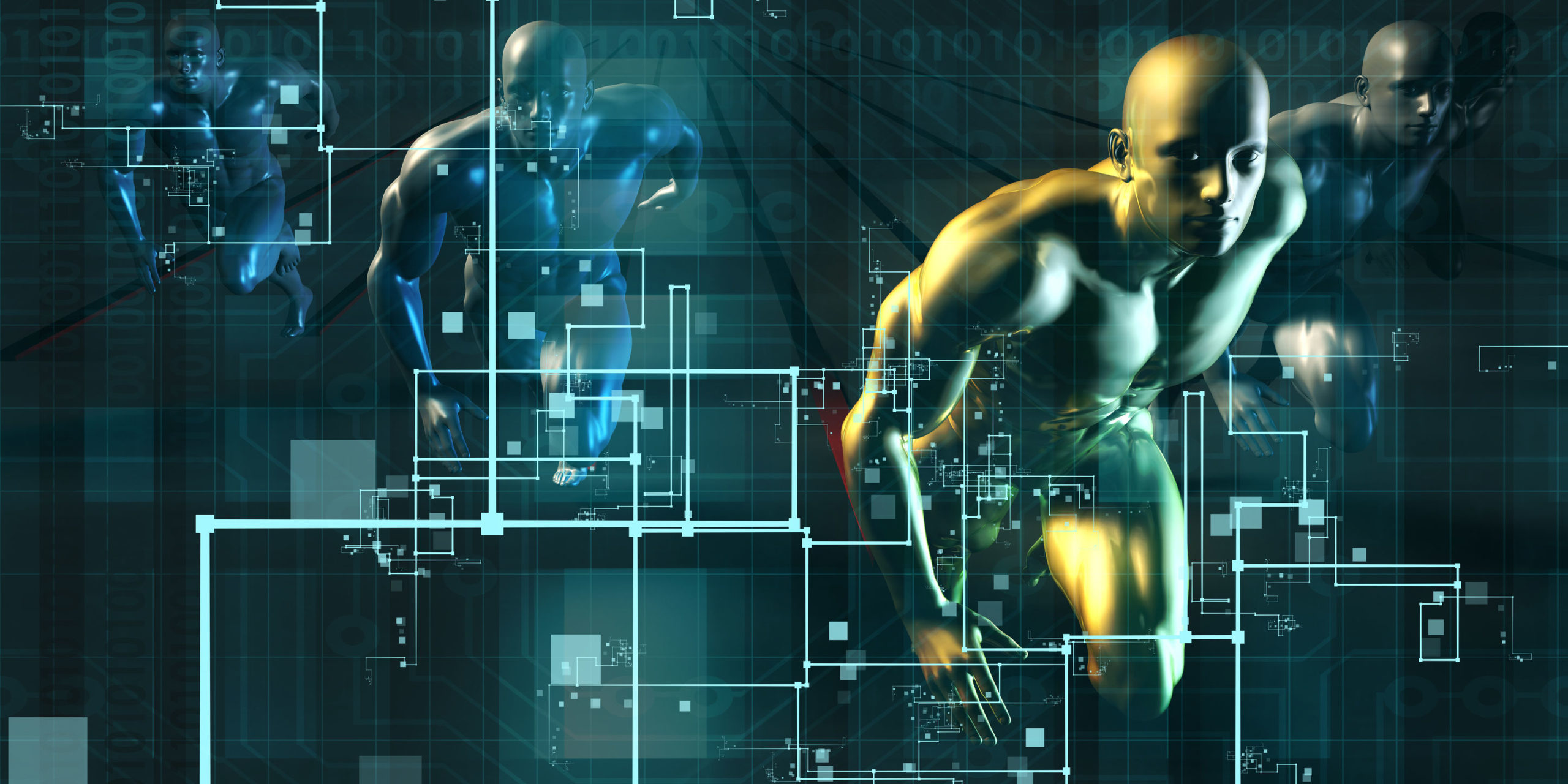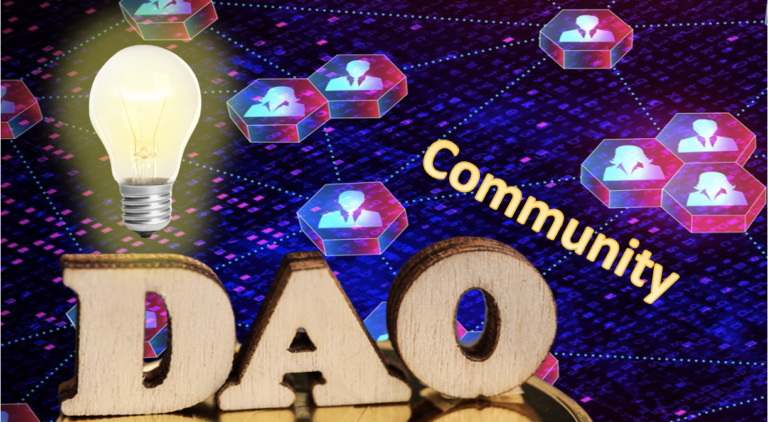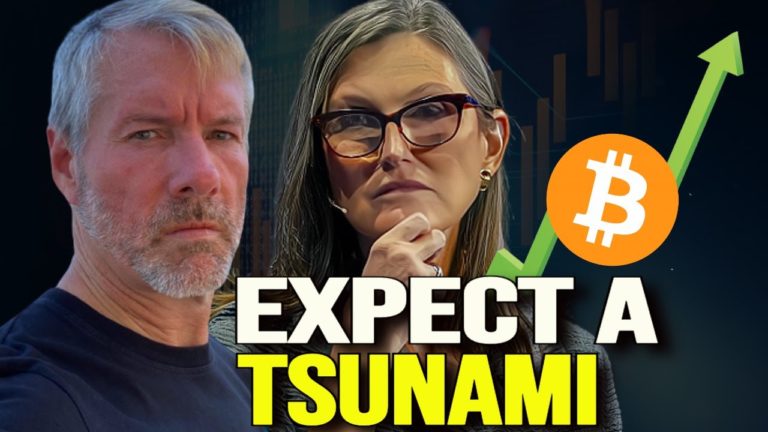There is an invisible world war being waged, and in ways it is more chilling than any war the world has yet known. It’s not fought with tanks, bombs, sonic jets, or nuclear arsenals. It is not waged by countries through trade embargo, cyber hacks, or terroristic dictatorships. In fact, we would be challenged to pin the enemy down to any one entity or organization, yet collectively this enemy far exceeds any opponent that we have ever faced. The war being waged is for our sovereignty, our human rights, and our ability to conduct our own meaningful futures. And it all started with the Cypherpunks.
The digital world has been stealthily chipping away at our precious freedom. With every seeming thousand-page digital disclosure we sign off on to access the latest app, we give up a piece of ourselves. As Shoshana Zuboff exclaims in her book Surveillance Capitalism,
“This new market form is a unique logic of accumulation in which surveillance is a foundational mechanism in the transformation of investment into profit.”
We are constantly surveilled. Siri, Alexa, every click we make, every keystroke we type, every e-mail we send, all have an omniscient eye and ear monitoring our communication, our expressions, which is bundled, packaged and sent to those who seek to profit from our information, our habits.
Zuboff goes on:
“Surveillance capitalism commandeered the wonders of the digital world to meet our needs for effective life, promising the magic of unlimited information and a thousand ways to anticipate our needs and ease the complexities of our harried lives.”
Under the guise of our benefit, the magnitude of this undertaking by technocratic power cannot be understated. We are indeed at the mercy of a digital armada, and risk becoming automatons to the will of a greater beast that we ourselves are creating, unknowingly, with every mouse-click. We feed this monster by constantly giving over to it our rights in the effort to make our lives more efficient, more connected, more convenient.
The dystopia we are spiraling toward had been forecast by a recondite community called the cypherpunks. Beginning in the 1980s this coterie came together to protect our civil liberties against the machine of authoritarian centralization that is now stymieing our times.
Along with surveillance capitalism, the centralized internet (and even our monetary system of central bank fiat currency) are the arsenals by which our digital futures are being hacked, owned and controlled.
Who were the cypherpunks and what did they stand for?
We can trace the cypherpunk call to arms to three individuals: Eric Hughes, Timothy C. May and John Gilmore who began an electronic mailing list in 1992 and met monthly in the San Francisco Bay area. It was here that the portmanteau—cypherpunk—was invented from the words “cypher” and “cyberpunk”; but the seeds of this newsletter go back even further to David Chaum, who dreamed of peer-to-peer digital cash and wrote “Security without Identification” in 1985, which espoused the notions of digital privacy and security.
These individuals were not “punks” in any conventional sense the word. They were gifted activists with the ability to understand, test, and create top security systems to protect highly sensitive data. They were cryptographers. And you can imagine their brain power as they were tasked throughout their careers with protecting sensitive data and the U.S. government from foreign threats, or even investigating breaches of supposedly secure systems. We could also surmise that because they were assigned to build the software infrastructure to guard such highly classified information, they were likely privy to sensitive information as well—in other words, if you’re putting content in a safe, you’re likely going to see what that content is.
And knowing what they knew, they felt a need to shout out their concerns to the public regarding our privacy, our digital property, and our digital identities.
Eric Hughes, in the beginning lines of his Cypherpunk Manifesto exclaims:
“Privacy is necessary for an open society in the electronic age. Privacy is not secrecy. A private matter is something one doesn’t want the whole world to know, a secret matter is something one doesn’t want anybody to know.”
He goes on…
“We cannot expect governments, corporations, or other large, faceless organizations to grant us privacy out of their beneficence. It is to their advantage to speak of us, and we should expect that they will speak. To prevent their speech is to fight against the realities of information. Information does not just want to be free, it longs to be free.”
Our most cherished civil liberties are at play here: privacy and freedom of speech. Hughes recognized that even the powers set up to protect our privacy, such as our government, will still find ways to spy it out of us. Under the patriot act our data was legally searched and seized. The U.S. government, who was assigned to protect the liberties of its people, played on people’s fear to pass the patriot act and gain unprecedented access for the supposed “greater good” and “security” of we, the people.
The Cypherpunk Manifesto, written in 1992, decades before the Bitcoin white paper, portended the consequences of an autocratic digital future, he rallies on:
“We must come together and create systems which allow anonymous transactions to take place… We the Cypherpunks are dedicated to building anonymous systems. We are defending our privacy with cryptography, with anonymous email forwarding systems, with digital signatures, and with electronic money.”
In the 1990s the Cypherpunk newsletter became iconic. It’s ideologies to foster a future were upheld by prominent names in cryptography, like Nick Szabo who is credited with the discovery of smart contracts, a key component in fight for a cryptographic internet.
Today, we have become numb to our rights being taken away. It’s done in the background through corporations administering to our needs, but not at our behest; rather, they do so for their own profit, and we succumb to the operations blindly, unknowingly. They create policies to sync with their own financial agenda and political beliefs. Think of the ramifications of a sitting president being de-platformed from social media in a matter of hours (This is not meant to suggest the stop the steal protest or the ideas behind it were viable)… it’s brought up to give us pause and contemplate: a powerful voice in the land of the free can be silenced quickly and ubiquitously by social media platforms at their behest.
The cypherpunk ideals align with the protection of our constitutional rights. We’re in an era of not only political polarization, but also an age of the politicization of everything, where one’s decision to wear a mask is somehow a statement about which political camp you are in. Or just by sharing some honest thoughts on gun laws cues people to categorize you on your whole political ideology. Our principles are not so black and white, so why are we forced to divide ourselves by the schisms and pressures party politics. These political camps are driven by bias cable news outlets and reinforcement feedback loops imbedded in social media algorithms customized to our habits, which then calculate our emotional response to keep our eyeballs engaged… these camps become the iron suits hiding our true identities even from ourselves.
I bring this up only to point out that there are forces at play behind the walled protocols of the major centralized internet powerhouses that most people interact with on a daily basis. It is important to understand that our attention is being manipulated, by our likes and dislikes, our click behaviors, anything done digitally while we are connected to apps and platforms. We have been examined and profiled and run through predicative protocols—all in an effort to understand how to better extract value from us.
The libertarian ideals of the cypherpunks may be a pathway back toward true self-expression and a better understanding who we are as a people. The constitution has no right or left, it is a discourse on human values, our values, our freedoms. And when these values are pitted against “the greater good” of society… we have to ensure that we are measuring that greater good by love, and not a self-interested outcome of a self-interested party. In rare cases, censorship may be a necessary course of action to protect the one’s we love. Hate speech or unlawful derision of a person and people is a certain kind of violence. But we must further examine what gives social media platforms authority over our voices.
These purveyors of self-interest come in many forms. It is the corporations lobbying for favorable policy conditions to turn a blind eye to egregious methods of business. It is the banks looking to charge maximum interest (or extrapolate the highest fees for a service without losing our business). It is the central banks that devalue our dollars through currency manipulation—all the while as the wealth gap increases to unprecedented levels.
These purveyors of self-interest can all be lumped into the sum definition called the centralized third party. The middleman—and it is this middleman that the cypherpunks fought so vigilantly to evade.
In 1988, even before the Cypherpunk electronic mailing list was sent, Timothy C. May, one of the three original cypherpunks wrote the “The Crypto Anarchist Manifesto,” in which he foresaw the likes of Napster long before its heyday, and the concept of peer-to-peer exchange. Peer-to-peer exchange is the foundation of Bitcoin and true cryptocurrency blockchains:
Excerpt from the “The Crypto Anarchist Manifesto”:
“Computer technology is on the verge of providing the ability for individuals and groups to communicate and interact with each other in a totally anonymous manner. Two persons may exchange messages, conduct business, and negotiate electronic contracts without ever knowing the True Name, or legal identity, of the other. Interactions over networks will be untraceable, via extensive re-routing of encrypted packets and tamper-proof boxes which implement cryptographic protocols with nearly perfect assurance against any tampering.”
The Cypherpunks were adamant about developing a peer-to-peer, private network. And this was long before surveillance capitalism was even a notion. Now, we sign our digital rights away on weekly basis. And there is a network of digital information constantly stored in background: through cameras built into our cars, police body cameras, our web cams on our front doors, or the millions of smart phones taking videos of, well, a whole lot at any given time. This metadata is a virtual world of sorts that is examined, psychologically profiled, and stored in massive clouds systems. Through this metadata corporations and other central authorities learn our habits better than we know them ourselves. For now, those habits are primarily our consumer habits—but let’s not let our guard down as to where this could lead.
Thus far we have not protected our digital freedoms and our rights. And this is of the utmost concern as our lives are becoming more and more digital. Screen time keeps increasing in work, in our living rooms, and while we are out and about with our smart phones and laptops. The centralized technocracies formed through big tech firms creatively strip away our digital freedoms: our privacy, our choices, and the ownership of our metadata. They persuade without us realizing we are being persuaded. Conceivably, with their rapid expansion, these conglomerates could very well put sovereign nations under their influence before any meaningful examination of their advanced click-bait tactics is complete—we need an army of algorithm and protocol experts to decipher the foundations of a new age digital addictions, social media obsessive, and deep-layer manipulative advertising. The metadata that these corporations possess may already hold power over the congressional leaders of nations states; the world is steadily becoming a place of digital authoritarianism.
Cryptocurrency: Blockchains to Freedom
Satoshi Nakamoto, with the introduction of Bitcoin, stood on the idealistic shoulders of the cypherpunks. Through crypto, we have an opportunity to take the proverbial power back, we can put metadata back into our own hands so that central power will not have access to our information. Secure, peer-to-peer information is the breakthrough that will allow the internet to be rebuilt according to cypherpunk principles.
For the cypherpunks, the internet was an opportunity. They originally believed that through dawning of the internet, cryptography would be able to protect and privatize our information.
To our demise, the vision for individual sovereignty on the internet was ultimately crushed by corporate interests who used the concept of free to suck away our freedom into the vacuum tubes (now microprocessors) behind every digital device we encounter. Free browsers, free search engines, free ways to connect to our families and friends, free e-mail, free Siri and Alexa, all the while our digital expressions are aggregated, bundled, packaged and sold to advertisers that know us better than we know ourselves. Every click of the mouse, every video, every text message, every voice call are tiny golden informational nuggets held by central servers, cold-stored across digital clouds across the world. And we still agree to their terms, without much consideration, and usually just to take part in the latest adventure of digital discovery and interactions that we crave.
The cypherpunks saw this grim potential of the internet, warned against it, and yet it still took hold.
Now, cryptocurrency may be the last escape hatch out of an inevitable dystopian future. With our digital everything: our identities, our recorded choices, our complete psychological profiles now stored on the servers of big tech—with crypto we now have the opportunity to counter such control.
Blockchains enable digital privacy in decentralized manner. We can hold the content and have the private keys to our information about ourselves. We can get to decide what we share with others about ourselves. It is a misnomer to believe that cryptocurrency only pertains to wealth. In the same manner that Bitcoin has enabled decentralized wealth for the masses, cryptocurrencies, through smart contracts, allow for data exchange in the same peer-to-peer decentralized manner. And by data I am referring to any kind of digital information: photos, videos, text messages, books, music, etc., anything digital that can be exchanged through the blockchain, encrypted, without the need for a third-party intermediary.
But we must be cautious to remain vigilant and not succumb to the same fate as Internet 1.0 and 2.0. Blockchains are not all created alike, and the jury is not out on which blockchains will be best suited for our civil liberties. In fact, even the most popular blockchains seem to be controlled by wealthy stakers and miners. But this is by no means to dissuade us from embracing the decentralized, private and secure internet that cryptocurrencies offer. By learning about sovereign cryptocurrency and seeing all the marvels it is capable of, the internet 3.0 can protect our human rights through decentralization—through crypto we can uphold our sacred freedoms. Even during times of market volatility and erosion of value, you can be sure that it is the idealists, the modern day cypherpunks, who HODL through the crypto winters to fight the invisible dark armies tearing at our sovereignty. They may not know cryptography like their iconic predecessors, but they are soldiers for our freedom, and the future truly decentralized internet.
Disclosure: Long Bitcoin






